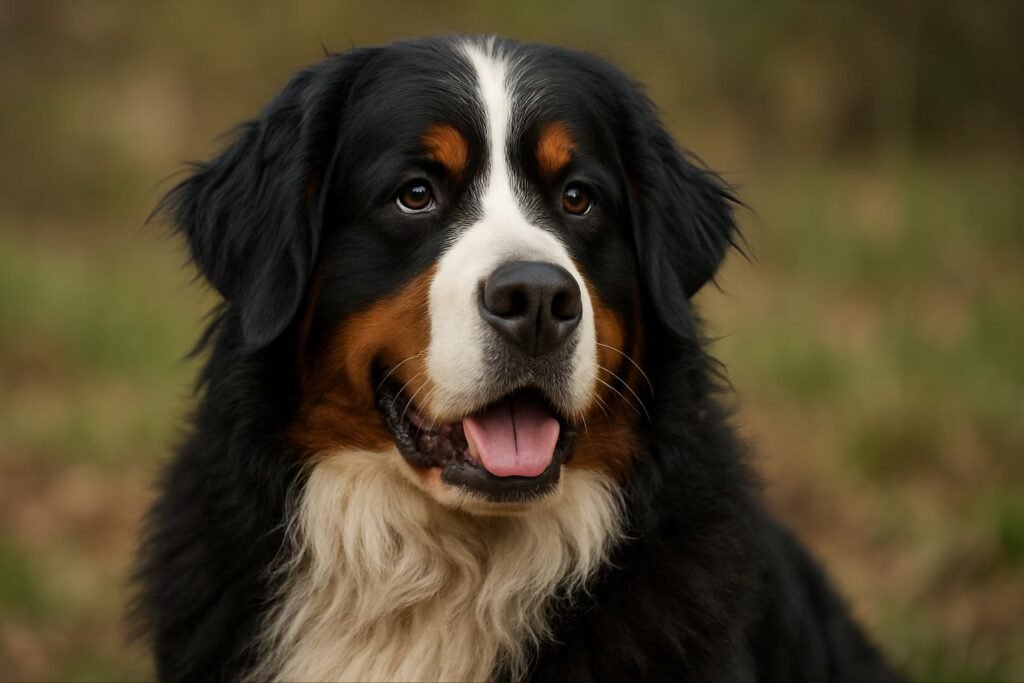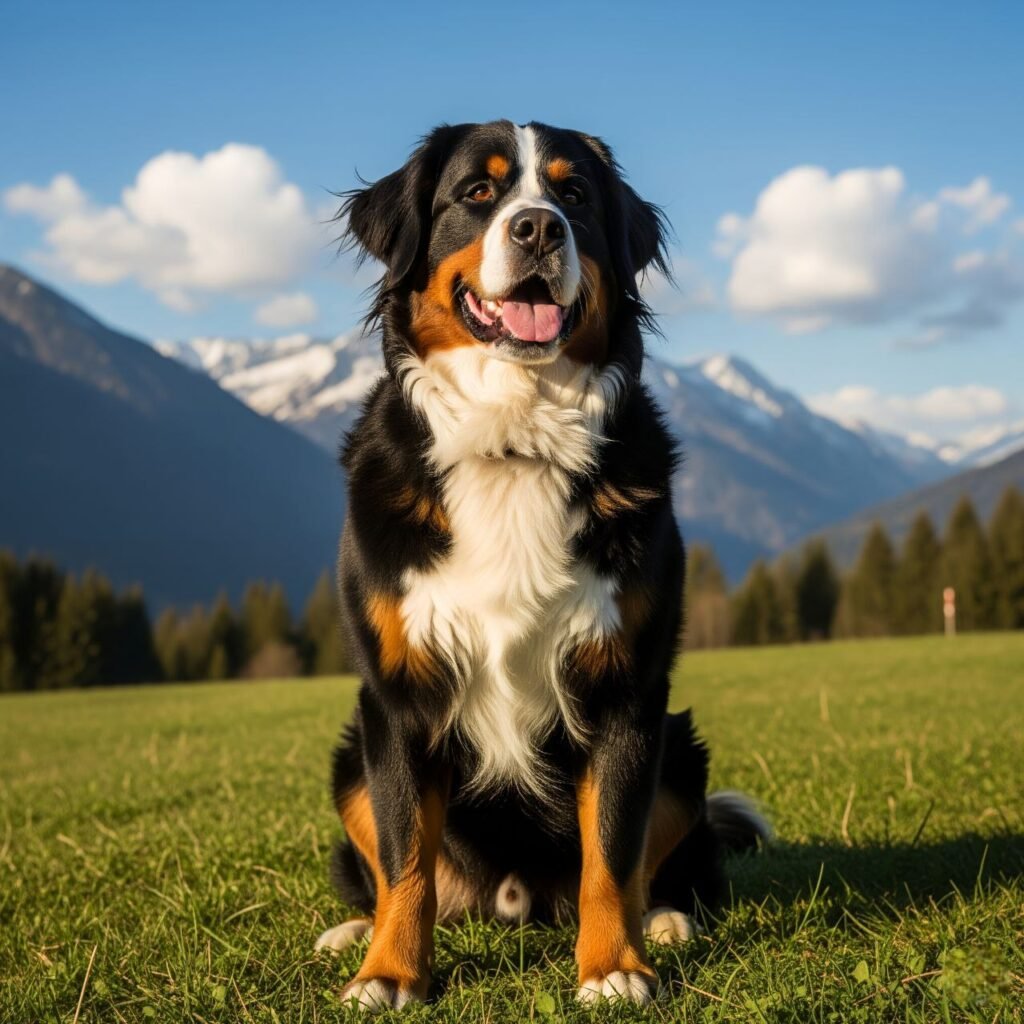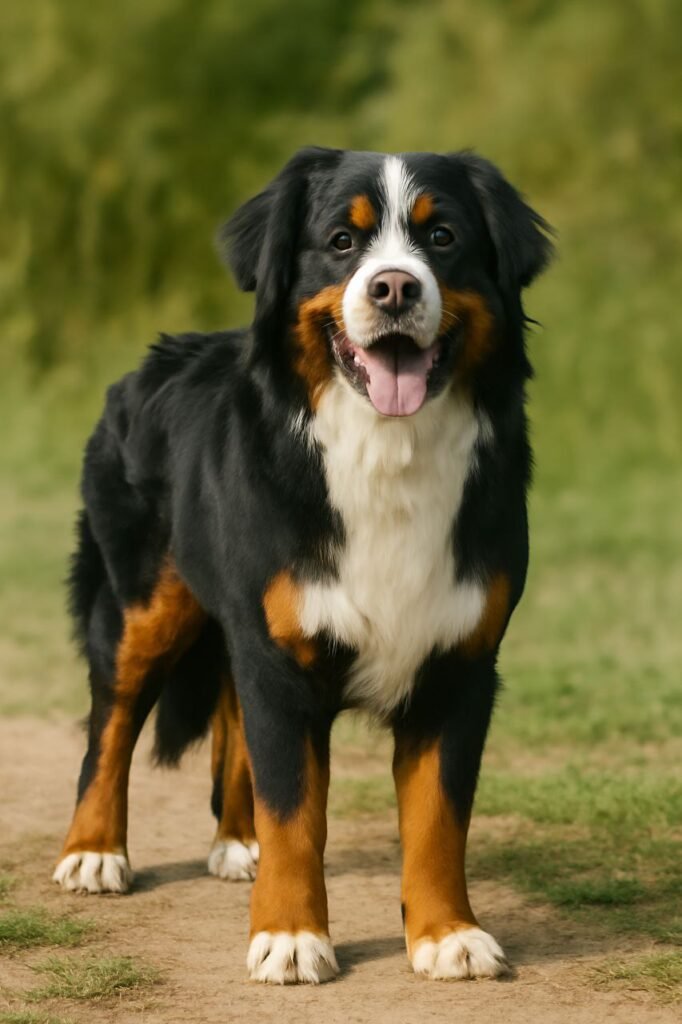Bernese Mountain Dog: A Gentle Giant from the Swiss Alps
The Bernese Mountain Dog, affectionately known as the “Berner,” is one of the most beloved large dog breeds in the world. With its striking tri-color coat, friendly temperament, and strong working background, this breed makes an ideal companion for families and dog enthusiasts alike.

History and Origin
The Bernese Mountain Dog hails from the Swiss Alps, particularly the region of Bern, hence the name. It belongs to a group of dogs known as the Sennenhund, which were used by Swiss farmers for drafting (pulling carts), herding cattle, and guarding property.
These dogs have a lineage that dates back over 2,000 years, thought to be descendants of mastiff-type dogs brought to Switzerland by the Romans. Over time, the breed was refined to handle the mountainous terrain and serve as a multi-purpose farm dog.
Physical Characteristics
- Size: Large
- Weight: 70–115 pounds (32–52 kg)
- Height: 23–28 inches (58–70 cm) at the shoulder
- Lifespan: 7–10 years
- Coat: Thick, long double coat
- Colors: Tri-color (black with rust and white markings)
The Bernese Mountain Dog’s most iconic feature is its beautiful coat, which is not only eye-catching but also provides insulation against cold weather.

Temperament
Berners are known for their gentle, affectionate, and calm demeanor. They are deeply loyal to their families, often forming strong bonds with all members of the household. While they can be somewhat shy or reserved with strangers, they are rarely aggressive.
They are especially good with children, making them excellent family dogs. However, because of their size and strength, supervision is recommended with smaller kids.
Also read: Why Your Dog Suddenly Stopped Drinking Water Will Shock You.
Exercise and Training
Despite their laid-back nature indoors, Bernese Mountain Dogs are active working dogs and need regular exercise to stay healthy and happy. Daily walks, hikes, or even cart-pulling activities are great for them.
Training is typically straightforward as they are intelligent and eager to please. Early socialization and obedience training are essential to ensure they grow up well-mannered and confident.
Health and Care
Unfortunately, Berners have one of the shorter lifespans among dog breeds. Common health issues include:
- Hip and elbow dysplasia
- Cancer (especially histiocytic sarcoma)
- Progressive retinal atrophy
- Bloat (gastric torsion)
Regular vet check-ups, a healthy diet, and responsible breeding practices can help minimize risks.
Their thick coat requires regular brushing (2–3 times a week) to prevent matting and reduce shedding. They tend to shed heavily, especially in spring and fall.

Is the Bernese Mountain Dog Right for You?
The Bernese Mountain Dog is ideal for people who:
- Have space (they’re not suited to small apartments)
- Enjoy outdoor activities
- Can commit to grooming and healthcare needs
- Want a loyal, family-friendly companion
Fun Facts
- Berners have a strong instinct to pull. In fact, there’s a sport called carting where they excel.
- They are often used as therapy dogs due to their calm and loving nature.
- Despite their size, many Berners think they’re lap dogs!
The Bernese Mountain Dog combines beauty, strength, and kindness in one large, fluffy package. Though their time with us may be shorter than other breeds, their loyalty and love leave a lasting mark. With the right care and environment, a Berner can be a joyful and devoted addition to your life.

